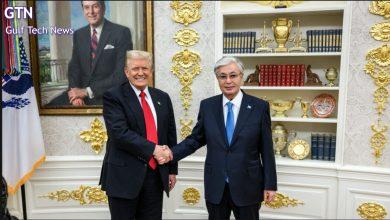H-1B Visa Fee Hike Rattles Tech Companies and Global Markets

By Mohanad Yakout, Senior Markets Analyst, Scope Markets
The U.S. administration’s decision to raise the H-1B visa fee to $100,000 has sparked widespread debate across economic and financial circles, marking a drastic shift in immigration policy that American companies have long relied on to attract global talent and maintain a competitive edge.
The H-1B visa is one of the most important pathways for bringing high-level technical expertise into the U.S., and such a steep cost increase places significant pressure on companies (particularly in the tech sector) and raises questions about the US market’s ability to remain attractive to international talent amid growing global competition.
Major U.S. tech companies such as Amazon, Microsoft, Google, and others have been among the biggest beneficiaries of professional immigration programs, depending heavily on foreign engineers and developers to fill gaps in the domestic labor market.
The sharp increase in fees will double hiring costs and prompt a reassessment of human resources strategies, whether by reducing applicant numbers or relying more heavily on overseas development centers in Asia and Eastern Europe.
This shift could slow the pace of innovation and delay the launch of new products in key sectors like artificial intelligence and cloud computing, ultimately affecting these companies’ ability to maintain competitiveness, which in turn puts downward pressure on their stock prices.
The impact has not been limited to the U.S. market; it has also extended to global markets. Shares of Indian IT companies plunged sharply following the announcement, given their heavy reliance on sending employees to work in the U.S.
Furthermore, the increased visa costs may push skilled workers to choose alternative destinations such as Canada and Europe, where immigration requirements are more affordable and flexible, giving those countries an added advantage in attracting innovative minds.
In the long run, this decision could reshape the global innovation map and erode the United States’ historic status as the leading hub for advanced technology, unless more balanced policies are introduced that meet the needs of the economy without sacrificing its competitive edge.





